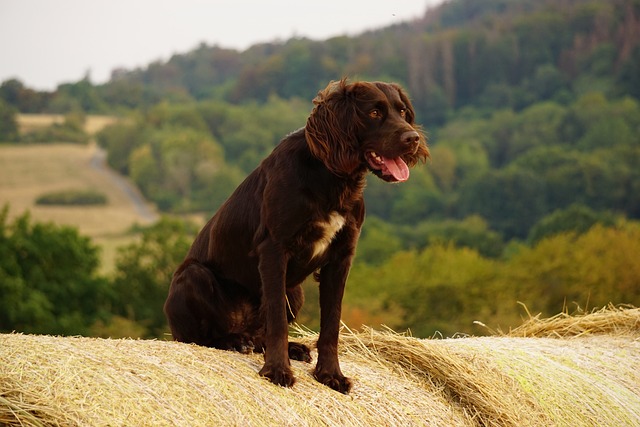


The German Spaniel, also known as the Deutscher Spaniel, is a versatile and hardworking dog breed originally bred for hunting and retrieving tasks. This breed is known for its friendly and affectionate nature, making it a great companion for families and active individuals alike. German Spaniels are medium-sized dogs with a keen sense of smell and a natural love for water, making them excellent waterfowl retrievers.
The German Spaniel’s origins date back to the 19th century in Germany, where it was developed as a versatile hunting dog. It was primarily used for pointing, flushing, and retrieving game, particularly waterfowl. The breed was created by crossing various Spaniel-type dogs, and over time it became known for its strong hunting instincts, intelligence, and adaptability in the field. Although the breed’s popularity has waned in some regions, it remains a beloved hunting companion in Germany and other parts of Europe.
German Spaniels are medium-sized dogs, typically standing between 17 to 22 inches tall at the shoulder and weighing around 30 to 40 pounds. They have a sturdy, muscular build that allows them to work long hours in the field. Their coat is dense, water-resistant, and wavy or curly, often in shades of brown, liver, or black with white markings. The breed has a long, feathery tail, and their ears are slightly rounded and covered with long hair. Their eyes are typically dark and expressive, conveying a friendly and intelligent nature.
German Spaniels are known for their gentle and affectionate temperament. They are friendly, eager to please, and form strong bonds with their families. While they are often reserved around strangers, they tend to warm up quickly once they get to know them. German Spaniels are typically good with children and other pets, especially when properly socialized from a young age. Due to their strong hunting instincts, they may show interest in small animals, but with proper training, they can live harmoniously with other pets.
As an active and energetic breed, German Spaniels require a good amount of daily exercise to stay happy and healthy. They enjoy activities such as hiking, running, swimming, and, of course, hunting. A long walk or jog, along with playtime in a securely fenced yard, is essential to meet their exercise needs. They thrive in active households where they can participate in outdoor activities. Mental stimulation is also important, as they are intelligent dogs that enjoy problem-solving and interactive play.
German Spaniels are highly intelligent and trainable, making them responsive to obedience training. They are eager to please and excel in positive reinforcement-based training methods. Early socialization is crucial to help them become well-adjusted dogs. Exposing them to various environments, people, and other animals from a young age helps ensure they develop good manners and confidence. Due to their hunting background, they may have a strong prey drive, so it’s essential to work on recall and leash training to keep them under control in various situations.
German Spaniels are generally a healthy breed, but like all dogs, they can be prone to certain health issues. Some common concerns include hip dysplasia, elbow dysplasia, and ear infections, especially due to their long, floppy ears. Regular veterinary check-ups, a healthy diet, and routine exercise can help manage these potential issues. Their coat should be brushed regularly to prevent matting, and their ears should be cleaned frequently to avoid infections. As a breed with a strong hunting instinct, they require mental and physical stimulation to prevent boredom and related behavioral issues.
The average lifespan of a German Spaniel is between 12 and 14 years. With proper care, including a balanced diet, regular exercise, and routine vet visits, many German Spaniels can live long, healthy lives. Genetics and the environment also play a role in their overall health, so it’s important to provide them with a loving and active lifestyle throughout their lives.
© copyright Dog Compendium 2024 - 2026